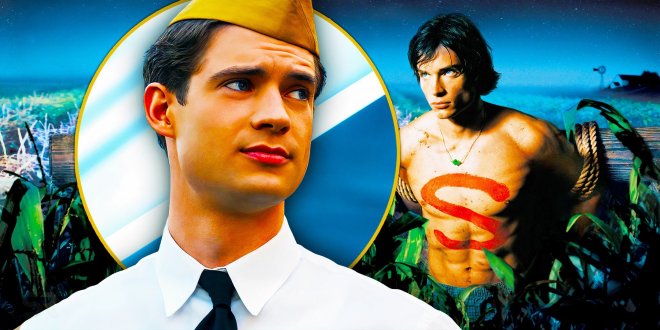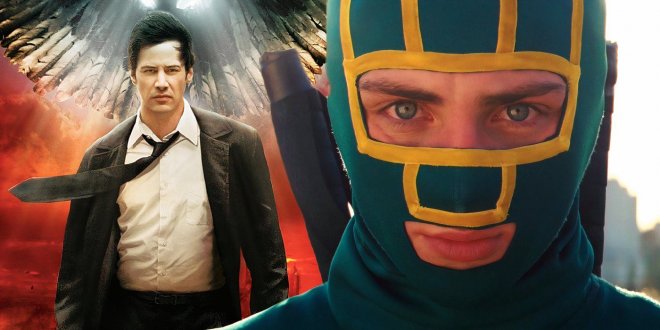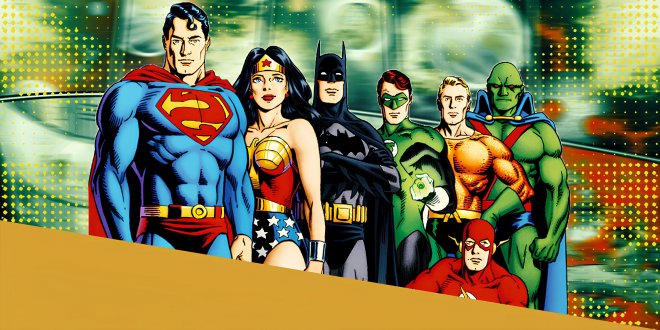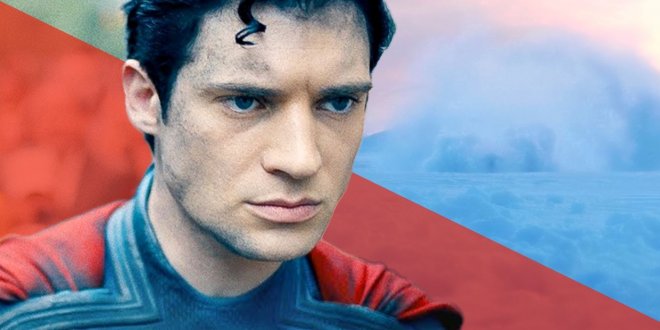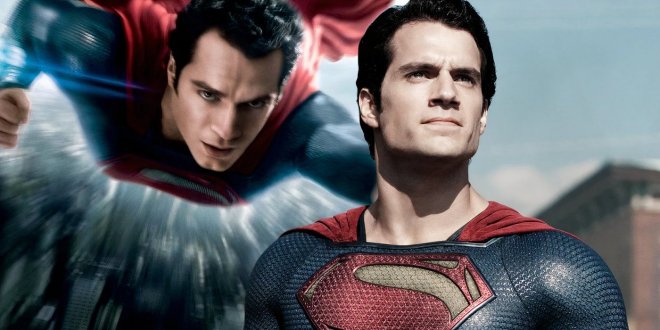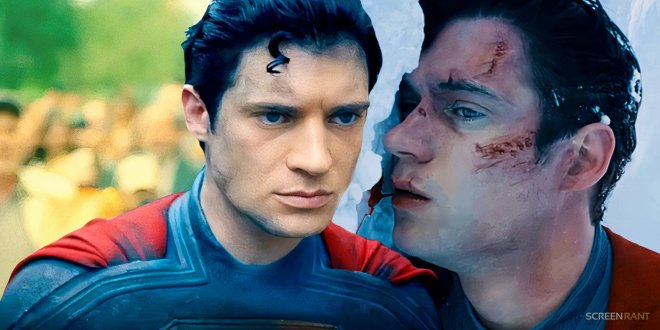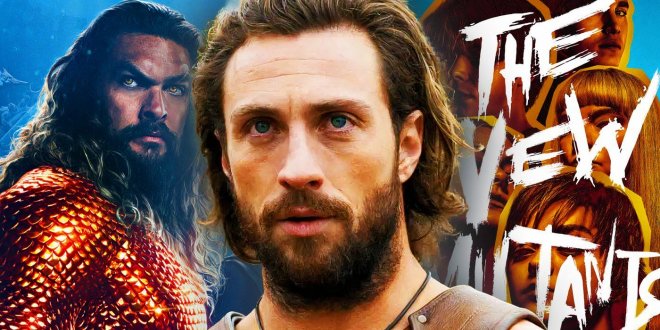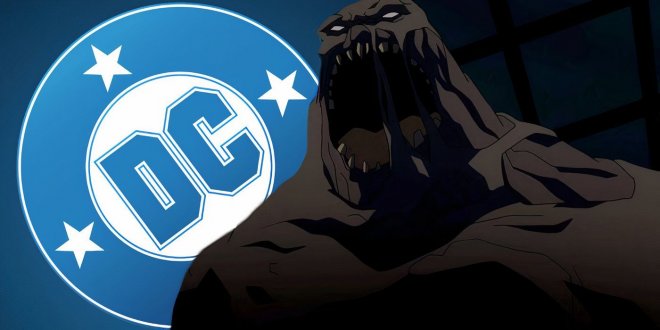10 DC Movie Decisions That Aged Poorly
The movies adapting the heroes of the DC Universe have seen many characters make decisions that proved to age poorly. Even before the beginning of the DCEU’s movie timeline, DC movie adaptations were bringing the heroes of DC Comics to life on the big screen. Boasting several iconic characters such as Superman, Batman, and Wonder Woman, the movies set in the DC Universe feature some of the most recognizable characters in pop culture.
However, those characters don’t always make the best decisions. The movies of the DCEU saw many characters make certain choices that turned out to be terrible in the long run, or be viewed differently years later as part of the ever-shifting cultural landscape of modern society. Well-intentioned or not, they each came to be considered poor choices in hindsight, making these 10 DC movie decisions age incredibly poorly.
10 Waller Choosing To Enlist Villains, Rather Than Heroes Suicide Squad (2016) Close Of all the post-credits scenes in the DCEU, one of the most exciting saw Bruce Wayne interacting with Amanda Waller after the events of Suicide Squad. The scene tied the 2016 into the DCEU, establishing it as part of the franchise and subtly teasing that Ben Affleck’s Batman might face Jared Leto’s Joker at some point in the future. However, it also highlights just how ridiculous Waller’s decision to form Task Force X was in the first place.
The scene reveals that Waller knows that Bruce Wayne is Batman, and that she also has leverage over other metahumans, including the Flash. This raises the question as to why she would enlist wildly unpredictable criminals to do her bidding, particularly as the scheme largely spiraled out of control. The decision to do so ultimately aged poorly, as it worked against Waller even more than it worked for her, and Suicide Squad’s post-credits scene confirmed that she actually had more reliable options.
9 Black Adam Goading Superman Black Adam (2022) Another DCEU set-up taking place after the events of its movie came in Black Adam’s post-credits scene, which featured the triumphant return of Henry Cavill’s Superman. The scene saw Black Adam faced with Superman, with the former goading the latter and teasing a future fight between the two powerhouses. Shortly after Black Adam’s release, the scene proved to age remarkably poorly.
Not long after Cavill’s long-awaited return as Superman, it was announced that the DCEU would be rebooted, and that he would no longer play the role. Not only did Black Adam’s decision to goad Superman seem ill-advised at the time, but it ultimately led to nothing, making it age poorly in a meta sense. Even worse, the tease of Cavill’s return was also never paid off, making even the decision to include the scene age badly even within months of Black Adam’s release.
8 Jonathan Kent Telling Clark Not To Save Him Man of Steel (2013) Man of Steel began the DCEU with a Superman origin story, establishing DC’s most iconic hero straight off the mark. Though Henry Cavill’s first appearance as Zack Snyder’s Superman was largely well-received by audiences, one particular decision made by a character in the movie aged especially badly. Early in the film, a young Clark Kent is forced to watch as his father dies, all because the elder Kent didn’t want Clark to expose his abilities to the world.
Not only does Clark debut as Superman a few years later, but the decision to give his life to protect Clark’s secret was exposed as nonsensical over time. The more audiences scrutinized the moment, the more it became evident that Clark could easily have saved his father without revealing his identity. Not only does it seem to be a frustrating plot hole, but it also makes Pa Kent’s decision seem particularly bad when looking back on Man of Steel.
7 Batman Trying To Kill Superman Batman v Superman: Dawn of Justice (2016) Close The DCEU introduced its Batman in the divisive Batman v Superman: Dawn of Justice, pitting the two DC heroes against one another on the big screen. One decision made by the franchise’s Dark Knight early in the film aged especially badly within the franchise. After witnessing the destruction of Metropolis, Bruce Wayne swears vengeance on the Kryptonians, including Superman himself. The decision to do so ultimately proved to have been incredibly naive in later movies.
By the end of the movie, the heroes are able to reconcile their differences anyway, making Batman’s hasty vow of vengeance seem distinctly flimsy. However, after Superman’s death at the hands of Doomsday, it’s then down to Batman and his fellow heroes to bring Superman back to life, as they need his help fighting Steppenwolf. This all makes Batman’s desire to kill Superman seem especially ridiculous, with his decision aging poorly as a result.
6 Trusting Catwoman To Help Against Bane The Dark Knight Rises (2012) Christopher Nolan’s Dark Knight trilogy remains one of the most beloved in the superhero genre, and is widely celebrated as one of the best movie trilogies ever made. The final entry into the three-film arc, The Dark Knight Rises, sees the introduction of Catwoman to Nolan’s Gotham. Shortly after meeting her, Batman makes the ill-advised decision to trust the career criminal he caught stealing his late mother’s jewelry.
The decision predictably backfires when Catwoman betrays Batman’s trust and delivers the hero directly into Bane’s clutches. Her self-serving nature was clear from the beginning, and Batman made the uncharacteristic choice to let his guard down. Even though Catwoman proved reliable in the end, her betrayal earlier in the movie made Batman’s decision to trust her seem incredibly poor judgment on his part, aging poorly just as soon as she was able to betray him to save herself.
5 Leaving To Go To Krypton Superman Returns (2006) Close Released in 2006, Superman Returns is one of the most often-overlooked chapters in the hero’s cinematic history. That status is unfair, as the movie boasts significant merit, although one of the titular hero’s decisions ages badly over the course of the movie. Superman Returns begins with Superman arriving once more on Earth after investigating the location where scientists believed to have found the remains of Krypton. The adventure that follows sees him learn of Lois Lane’s fiancé, Richard, and son, Jason.
As if losing out on a future with the woman he loved didn’t make his decision to leave age poorly enough, the later reveal that Jason is, in fact, Superman’s own child makes it far worse. Superman’s choice to leave Earth meant that he missed the birth of his son and the opportunity to build a life with Lois, all for insight into his destroyed homeworld. Through no fault of his own, Superman’s decision ultimately proved to have been a terrible one.
4 Manipulating Batman And Superman Into Fighting Lex Luthor, Batman v Superman: Dawn of Justice (2016) Close Of all the many live-action versions of Lex Luthor, Jesse Eisenberg’s remains one of the least popular. Lack of comic-accuracy and ill-conceived writing are most often cited as the reasons, though the character also makes some incredibly bad decisions during his brief appearance in the DCEU. Luthor is revealed to be pulling the strings of both Batman and Superman, hoping to encourage the former to kill the latter.
What makes Luthor’s decision age so poorly is his reaction to Superman’s death, even after being directly responsible for it. He announces that Superman’s defeat has left the Earth vulnerable, lamenting the evil that’s supposedly coming. What’s more, his decision to involve himself in Batman and Superman’s lives leads to his capture and imprisonment, making the decision age poorly on just about every front imaginable for the DCEU’s unpopular version of the iconic supervillain.
3 Batman Revealing His Identity To Rachel Batman Begins (2005) Batman Begins serves as an incredible origin story for the eponymous vigilante, with Christian Bale bringing the Dark Knight to life in a way that few could have imagined ahead of its release. The film’s ending sees him subtly reveal his identity to his love interest and childhood friend Rachel, quoting her own line of dialogue from earlier in the film back at her after saving her life as Batman. However, the decision to do so led to some rather unpleasant and unforeseen circumstances.
Rachel’s knowledge of Bruce’s identity was ultimately what kept her from becoming romantically involved with him, as revealed in the letter she left him after her death. However, it also saw her protect him from the Joker in The Dark Knight, catching the villain’s eye in the process. This is a major part of what led the Joker to kidnap and kill Rachel, meaning that Bruce’s decision to reveal his identity to her indirectly caused her death.
2 Refusing To Save Jesse Kane Aquaman (2018) The DCEU’s Aquaman was one of the franchise’s most popular heroes, as Jason Momoa’s charismatic performance complemented innovative writing to make him one of the DCEU’s most exciting figures. However, one decision the character makes early in his first solo movie turned out to age incredibly badly for him, haunting him throughout his story in the franchise. When saving a submarine being attacked by pirates, Aquaman finds himself battling David and Jesse Kane.
When the latter is wounded in their fight, Aquaman declines to save their lives, leaving the pair to die. David is able to escape, swearing revenge on the hero and adopting the mantle of the Black Manta. Had Aquaman simply opted to save Jesse’s life, he never would have made an enemy of his son. Not only was the decision to leave them for dead decidedly unheroic, but it backfired on Aquaman in a major way.
1 Bruce Wayne Saving “Ducard” From The Fire Batman Begins (2005) Batman Begins followed an idealistic young Bruce Wayne as he developed the Batman persona in order to fight crime in Gotham, but not before receiving extensive training from the League of Shadows. Not wanting to take a life, Bruce accidentally sets fire to their headquarters, though stops to save the life of his mentor, Ducard, in his escape. Doing so turned out to have been one of the worst decisions made in DC movie history.
Ducard turned out to be none other than Ra’s al Ghul, the leader of the League of Shadows and the man intent on destroying Gotham. This saw his plan to attack the city come to fruition, forcing Batman to stop him and ultimately cause his death anyway. It also indirectly led to Bane’s attack on Gotham in The Dark Knight Rises, meaning that had Bruce simply left his mentor to die, he could have avoided later conflict and collateral damage. As such, it’s one of the worst-aged decisions in the history of the DC Universe.
Upcoming DC Movie Releases
However, those characters don’t always make the best decisions. The movies of the DCEU saw many characters make certain choices that turned out to be terrible in the long run, or be viewed differently years later as part of the ever-shifting cultural landscape of modern society. Well-intentioned or not, they each came to be considered poor choices in hindsight, making these 10 DC movie decisions age incredibly poorly.
10 Waller Choosing To Enlist Villains, Rather Than Heroes Suicide Squad (2016) Close Of all the post-credits scenes in the DCEU, one of the most exciting saw Bruce Wayne interacting with Amanda Waller after the events of Suicide Squad. The scene tied the 2016 into the DCEU, establishing it as part of the franchise and subtly teasing that Ben Affleck’s Batman might face Jared Leto’s Joker at some point in the future. However, it also highlights just how ridiculous Waller’s decision to form Task Force X was in the first place.
The scene reveals that Waller knows that Bruce Wayne is Batman, and that she also has leverage over other metahumans, including the Flash. This raises the question as to why she would enlist wildly unpredictable criminals to do her bidding, particularly as the scheme largely spiraled out of control. The decision to do so ultimately aged poorly, as it worked against Waller even more than it worked for her, and Suicide Squad’s post-credits scene confirmed that she actually had more reliable options.
9 Black Adam Goading Superman Black Adam (2022) Another DCEU set-up taking place after the events of its movie came in Black Adam’s post-credits scene, which featured the triumphant return of Henry Cavill’s Superman. The scene saw Black Adam faced with Superman, with the former goading the latter and teasing a future fight between the two powerhouses. Shortly after Black Adam’s release, the scene proved to age remarkably poorly.
Not long after Cavill’s long-awaited return as Superman, it was announced that the DCEU would be rebooted, and that he would no longer play the role. Not only did Black Adam’s decision to goad Superman seem ill-advised at the time, but it ultimately led to nothing, making it age poorly in a meta sense. Even worse, the tease of Cavill’s return was also never paid off, making even the decision to include the scene age badly even within months of Black Adam’s release.
8 Jonathan Kent Telling Clark Not To Save Him Man of Steel (2013) Man of Steel began the DCEU with a Superman origin story, establishing DC’s most iconic hero straight off the mark. Though Henry Cavill’s first appearance as Zack Snyder’s Superman was largely well-received by audiences, one particular decision made by a character in the movie aged especially badly. Early in the film, a young Clark Kent is forced to watch as his father dies, all because the elder Kent didn’t want Clark to expose his abilities to the world.
Not only does Clark debut as Superman a few years later, but the decision to give his life to protect Clark’s secret was exposed as nonsensical over time. The more audiences scrutinized the moment, the more it became evident that Clark could easily have saved his father without revealing his identity. Not only does it seem to be a frustrating plot hole, but it also makes Pa Kent’s decision seem particularly bad when looking back on Man of Steel.
7 Batman Trying To Kill Superman Batman v Superman: Dawn of Justice (2016) Close The DCEU introduced its Batman in the divisive Batman v Superman: Dawn of Justice, pitting the two DC heroes against one another on the big screen. One decision made by the franchise’s Dark Knight early in the film aged especially badly within the franchise. After witnessing the destruction of Metropolis, Bruce Wayne swears vengeance on the Kryptonians, including Superman himself. The decision to do so ultimately proved to have been incredibly naive in later movies.
By the end of the movie, the heroes are able to reconcile their differences anyway, making Batman’s hasty vow of vengeance seem distinctly flimsy. However, after Superman’s death at the hands of Doomsday, it’s then down to Batman and his fellow heroes to bring Superman back to life, as they need his help fighting Steppenwolf. This all makes Batman’s desire to kill Superman seem especially ridiculous, with his decision aging poorly as a result.
6 Trusting Catwoman To Help Against Bane The Dark Knight Rises (2012) Christopher Nolan’s Dark Knight trilogy remains one of the most beloved in the superhero genre, and is widely celebrated as one of the best movie trilogies ever made. The final entry into the three-film arc, The Dark Knight Rises, sees the introduction of Catwoman to Nolan’s Gotham. Shortly after meeting her, Batman makes the ill-advised decision to trust the career criminal he caught stealing his late mother’s jewelry.
The decision predictably backfires when Catwoman betrays Batman’s trust and delivers the hero directly into Bane’s clutches. Her self-serving nature was clear from the beginning, and Batman made the uncharacteristic choice to let his guard down. Even though Catwoman proved reliable in the end, her betrayal earlier in the movie made Batman’s decision to trust her seem incredibly poor judgment on his part, aging poorly just as soon as she was able to betray him to save herself.
5 Leaving To Go To Krypton Superman Returns (2006) Close Released in 2006, Superman Returns is one of the most often-overlooked chapters in the hero’s cinematic history. That status is unfair, as the movie boasts significant merit, although one of the titular hero’s decisions ages badly over the course of the movie. Superman Returns begins with Superman arriving once more on Earth after investigating the location where scientists believed to have found the remains of Krypton. The adventure that follows sees him learn of Lois Lane’s fiancé, Richard, and son, Jason.
As if losing out on a future with the woman he loved didn’t make his decision to leave age poorly enough, the later reveal that Jason is, in fact, Superman’s own child makes it far worse. Superman’s choice to leave Earth meant that he missed the birth of his son and the opportunity to build a life with Lois, all for insight into his destroyed homeworld. Through no fault of his own, Superman’s decision ultimately proved to have been a terrible one.
4 Manipulating Batman And Superman Into Fighting Lex Luthor, Batman v Superman: Dawn of Justice (2016) Close Of all the many live-action versions of Lex Luthor, Jesse Eisenberg’s remains one of the least popular. Lack of comic-accuracy and ill-conceived writing are most often cited as the reasons, though the character also makes some incredibly bad decisions during his brief appearance in the DCEU. Luthor is revealed to be pulling the strings of both Batman and Superman, hoping to encourage the former to kill the latter.
What makes Luthor’s decision age so poorly is his reaction to Superman’s death, even after being directly responsible for it. He announces that Superman’s defeat has left the Earth vulnerable, lamenting the evil that’s supposedly coming. What’s more, his decision to involve himself in Batman and Superman’s lives leads to his capture and imprisonment, making the decision age poorly on just about every front imaginable for the DCEU’s unpopular version of the iconic supervillain.
3 Batman Revealing His Identity To Rachel Batman Begins (2005) Batman Begins serves as an incredible origin story for the eponymous vigilante, with Christian Bale bringing the Dark Knight to life in a way that few could have imagined ahead of its release. The film’s ending sees him subtly reveal his identity to his love interest and childhood friend Rachel, quoting her own line of dialogue from earlier in the film back at her after saving her life as Batman. However, the decision to do so led to some rather unpleasant and unforeseen circumstances.
Rachel’s knowledge of Bruce’s identity was ultimately what kept her from becoming romantically involved with him, as revealed in the letter she left him after her death. However, it also saw her protect him from the Joker in The Dark Knight, catching the villain’s eye in the process. This is a major part of what led the Joker to kidnap and kill Rachel, meaning that Bruce’s decision to reveal his identity to her indirectly caused her death.
2 Refusing To Save Jesse Kane Aquaman (2018) The DCEU’s Aquaman was one of the franchise’s most popular heroes, as Jason Momoa’s charismatic performance complemented innovative writing to make him one of the DCEU’s most exciting figures. However, one decision the character makes early in his first solo movie turned out to age incredibly badly for him, haunting him throughout his story in the franchise. When saving a submarine being attacked by pirates, Aquaman finds himself battling David and Jesse Kane.
When the latter is wounded in their fight, Aquaman declines to save their lives, leaving the pair to die. David is able to escape, swearing revenge on the hero and adopting the mantle of the Black Manta. Had Aquaman simply opted to save Jesse’s life, he never would have made an enemy of his son. Not only was the decision to leave them for dead decidedly unheroic, but it backfired on Aquaman in a major way.
1 Bruce Wayne Saving “Ducard” From The Fire Batman Begins (2005) Batman Begins followed an idealistic young Bruce Wayne as he developed the Batman persona in order to fight crime in Gotham, but not before receiving extensive training from the League of Shadows. Not wanting to take a life, Bruce accidentally sets fire to their headquarters, though stops to save the life of his mentor, Ducard, in his escape. Doing so turned out to have been one of the worst decisions made in DC movie history.
Ducard turned out to be none other than Ra’s al Ghul, the leader of the League of Shadows and the man intent on destroying Gotham. This saw his plan to attack the city come to fruition, forcing Batman to stop him and ultimately cause his death anyway. It also indirectly led to Bane’s attack on Gotham in The Dark Knight Rises, meaning that had Bruce simply left his mentor to die, he could have avoided later conflict and collateral damage. As such, it’s one of the worst-aged decisions in the history of the DC Universe.
Upcoming DC Movie Releases

